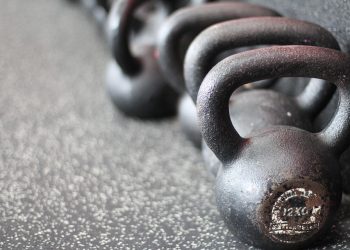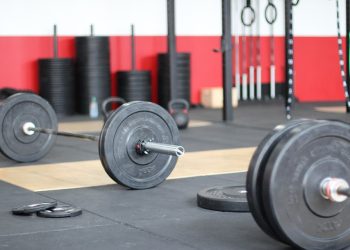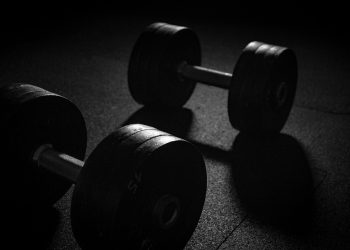Understanding the Complex Science of Weight Loss
Weight loss. It’s a topic riddled with misinformation, fad diets, and unrealistic promises. But beneath the noise lies a solid foundation of scientific principles that, when understood and applied correctly, can lead to sustainable and healthy weight management. This article dives deep into the science of weight loss, separating fact from fiction and providing actionable strategies for achieving your goals.
The Energy Balance Equation: Calories In vs. Calories Out
At its core, weight loss is governed by the energy balance equation. This simply states that if you expend more calories than you consume, you will lose weight. Conversely, if you consume more calories than you expend, you will gain weight. While this seems straightforward, the complexities lie in accurately assessing both sides of the equation.
Calories In: This refers to the total number of calories you consume through food and beverages. Accurately tracking your calorie intake can be challenging, as portion sizes, hidden calories, and inaccurate food labels can all throw you off. Using a reliable food tracking app and paying attention to serving sizes are crucial steps.
Calories Out: This encompasses several components:
-
- Basal Metabolic Rate (BMR): The number of calories your body burns at rest to maintain basic functions like breathing, circulation, and organ function. BMR is influenced by factors like age, sex, muscle mass, and genetics.
-
- Thermic Effect of Food (TEF): The energy your body uses to digest, absorb, and metabolize food. Protein has the highest TEF, meaning you burn more calories digesting protein compared to carbohydrates or fats.
-
- Activity Energy Expenditure (AEE): The calories you burn through physical activity, including exercise and non-exercise activity thermogenesis (NEAT). NEAT refers to everyday activities like walking, standing, and fidgeting.
While the energy balance equation is fundamental, it’s crucial to understand that it’s not the only factor influencing weight loss. Hormones, genetics, sleep, stress, and gut health all play significant roles.
The Role of Macronutrients: Protein, Carbohydrates, and Fats
The types of foods you eat, specifically the macronutrients – protein, carbohydrates, and fats – also impact weight loss, influencing satiety, metabolism, and hormonal balance.
Protein: The Satiety Powerhouse
Protein is essential for building and repairing tissues, and it plays a crucial role in weight management. Protein has a higher TEF compared to carbs and fats, meaning you burn more calories digesting it. More importantly, protein is highly satiating, meaning it helps you feel fuller for longer, reducing overall calorie intake. Aim for a protein intake of around 0.8-1.2 grams per pound of body weight, especially during weight loss.
Examples of good protein sources: Lean meats, poultry, fish, eggs, beans, lentils, tofu, and Greek yogurt.
Carbohydrates: Choosing Wisely for Energy and Fiber
Carbohydrates are your body’s primary source of energy. However, not all carbs are created equal. Focus on complex carbohydrates like whole grains, fruits, and vegetables, which are rich in fiber and nutrients. These carbs are digested more slowly, preventing blood sugar spikes and promoting feelings of fullness. Limit refined carbohydrates like white bread, pasta, and sugary drinks, as they can lead to rapid blood sugar fluctuations and increased cravings.
Examples of good carbohydrate sources: Brown rice, quinoa, oats, sweet potatoes, fruits, vegetables, and whole-grain bread.
Fats: Essential for Health and Hormone Production
Fats are essential for hormone production, nutrient absorption, and overall health. Choose healthy fats like monounsaturated and polyunsaturated fats, found in avocados, nuts, seeds, olive oil, and fatty fish. Limit saturated and trans fats, which can increase the risk of heart disease. While fats are calorie-dense (9 calories per gram), they can contribute to satiety and improve the absorption of fat-soluble vitamins.
Examples of good fat sources: Avocados, nuts, seeds, olive oil, salmon, and chia seeds.
The Importance of Exercise: Beyond Calorie Burning
Exercise is a crucial component of a successful weight loss program, but its benefits extend far beyond simply burning calories. Regular exercise improves insulin sensitivity, boosts metabolism, preserves muscle mass, reduces stress, and enhances overall well-being.
Cardiovascular Exercise: Burning Calories and Improving Heart Health
Cardiovascular exercise, such as running, swimming, cycling, or brisk walking, elevates your heart rate and burns calories. Aim for at least 150 minutes of moderate-intensity or 75 minutes of vigorous-intensity aerobic activity per week.
Strength Training: Building Muscle and Boosting Metabolism
Strength training, also known as resistance training, involves using weights or bodyweight to build muscle mass. Muscle is metabolically active, meaning it burns more calories at rest than fat. Building muscle through strength training can increase your BMR, making it easier to lose weight and maintain it long-term. Aim for at least two strength training sessions per week, targeting all major muscle groups.
The Role of NEAT: Maximizing Everyday Movement
Non-exercise activity thermogenesis (NEAT) refers to the calories you burn through everyday activities like walking, standing, fidgeting, and doing household chores. Increasing NEAT can significantly contribute to your overall calorie expenditure. Simple strategies include taking the stairs instead of the elevator, walking during phone calls, and standing while working.
Beyond Diet and Exercise: Other Factors Influencing Weight Loss
While diet and exercise are the cornerstones of weight loss, several other factors can significantly impact your progress.
Sleep: The Unsung Hero of Weight Management
Adequate sleep is crucial for regulating hormones that control appetite and metabolism. Sleep deprivation can lead to increased levels of ghrelin (the hunger hormone) and decreased levels of leptin (the satiety hormone), leading to increased cravings and overeating. Aim for 7-9 hours of quality sleep per night.
Stress Management: Taming the Cortisol Beast
Chronic stress can elevate cortisol levels, a hormone that can promote fat storage, particularly in the abdominal area. Managing stress through techniques like meditation, yoga, or spending time in nature can help regulate cortisol levels and support weight loss.
Gut Health: The Microbiome’s Influence on Metabolism
The gut microbiome, the community of microorganisms living in your digestive tract, plays a crucial role in metabolism, nutrient absorption, and inflammation. A healthy gut microbiome can support weight loss by improving insulin sensitivity, reducing inflammation, and promoting feelings of fullness. Consume a diet rich in fiber, fermented foods, and probiotics to support a healthy gut microbiome.
Hydration: Water’s Role in Satiety and Metabolism
Drinking adequate water is essential for overall health and can also support weight loss. Water helps you feel fuller, can boost metabolism, and is necessary for various bodily functions. Aim to drink at least 8 glasses of water per day.
Sustainable Strategies for Long-Term Weight Loss
The key to successful weight loss is adopting sustainable strategies that you can maintain long-term. Avoid fad diets that promise rapid weight loss, as they are often restrictive, unsustainable, and can lead to rebound weight gain. Focus on making gradual, sustainable changes to your diet and lifestyle.
Set Realistic Goals: Progress, Not Perfection
Set realistic weight loss goals. Aim for a gradual weight loss of 1-2 pounds per week. Focus on making small, sustainable changes to your diet and lifestyle rather than trying to overhaul everything at once.
Track Your Progress: Monitoring and Adjusting
Track your progress regularly to monitor your results and make adjustments as needed. Use a food journal, fitness tracker, or other tools to track your calorie intake, exercise, and weight.
Find Support: Building a Support System
Surround yourself with a supportive network of friends, family, or a weight loss support group. Having a support system can help you stay motivated and accountable.
Be Patient and Persistent: The Journey, Not Just the Destination
Weight loss is a journey, not a destination. There will be ups and downs along the way. Be patient, persistent, and celebrate your successes, no matter how small.
Conclusion
The science of weight loss is multifaceted, involving a complex interplay of energy balance, macronutrient composition, exercise, sleep, stress management, and gut health. By understanding these principles and adopting sustainable strategies, you can achieve your weight loss goals and improve your overall health and well-being. Remember to focus on making gradual, sustainable changes to your diet and lifestyle, and be patient with yourself. With dedication and consistency, you can achieve lasting results.
Frequently Asked Questions (FAQs)
Q: What is the best diet for weight loss?
A: There is no “best” diet for everyone. The most effective diet is one that you can adhere to long-term and that meets your individual needs and preferences. Focus on consuming a balanced diet rich in whole, unprocessed foods, including lean protein, complex carbohydrates, healthy fats, and plenty of fruits and vegetables.
Q: How many calories should I eat to lose weight?
A: The number of calories you need to eat to lose weight depends on your individual factors, such as age, sex, activity level, and metabolic rate. A general guideline is to create a calorie deficit of 500-750 calories per day to lose 1-2 pounds per week. Consult with a registered dietitian or healthcare professional for personalized recommendations.
Q: Is it possible to lose weight without exercise?
A: Yes, it is possible to lose weight without exercise by creating a calorie deficit through diet alone. However, exercise offers numerous benefits beyond weight loss, including improved cardiovascular health, increased muscle mass, and reduced stress. Incorporating exercise into your weight loss plan can enhance your results and improve your overall health.
Q: What are some healthy snack options for weight loss?
A: Healthy snack options for weight loss include fruits, vegetables, nuts, seeds, Greek yogurt, and hard-boiled eggs. Choose snacks that are high in protein, fiber, and healthy fats to promote satiety and prevent overeating.
Q: How can I stay motivated during my weight loss journey?
A: Staying motivated during your weight loss journey can be challenging, but there are several strategies you can use. Set realistic goals, track your progress, find a support system, reward yourself for achieving milestones, and focus on the non-scale benefits of weight loss, such as improved energy levels and better sleep.
Q: Are weight loss supplements safe and effective?
A: Many weight loss supplements are not regulated and may contain harmful ingredients. Some supplements may have limited evidence of effectiveness. It’s important to consult with a healthcare professional before taking any weight loss supplements, especially if you have any underlying health conditions or are taking medications. Focus on making sustainable changes to your diet and lifestyle rather than relying on supplements.
Q: How do I deal with weight loss plateaus?
A: Weight loss plateaus are a normal part of the weight loss journey. When you reach a plateau, your body adapts to your current calorie intake and exercise routine. To break through a plateau, try adjusting your calorie intake, increasing your exercise intensity or duration, or incorporating new types of exercise into your routine. Be patient and persistent, and remember that plateaus are temporary.
Q: What is the best way to maintain weight loss long-term?
A: The best way to maintain weight loss long-term is to continue following the healthy habits that helped you lose weight in the first place. Focus on consuming a balanced diet, exercising regularly, getting enough sleep, managing stress, and staying hydrated. It’s also important to be mindful of your eating habits and to practice portion control. Regular check-ins with a healthcare professional or registered dietitian can also help you stay on track.












